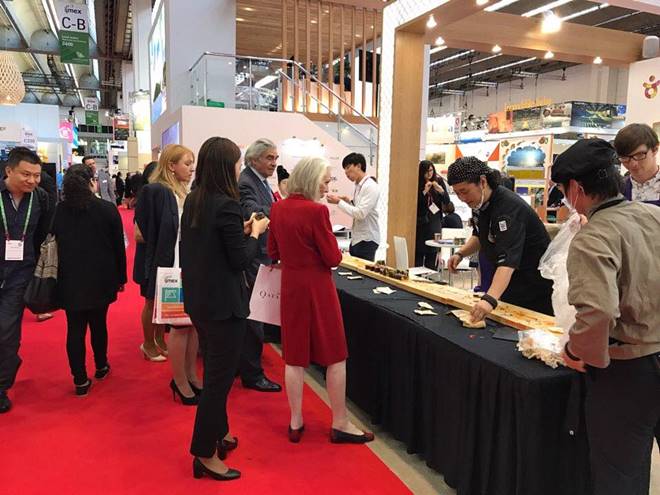
South Korea drew the most number of international meetings last year, according to official statistics.
The Ministry of Culture, Sports and Tourism (MCST) and the Korea Tourism Organization (KTO) cited data from the Union of International Associations (UIA), which annually publishes the statistics of world conferences every year.
In 2016, a total of 11,000 international meetings were held around the world, down from 12,350 in 2015.
South Korea hosted 997 meetings last year to top the ranking and achieve a market share of 9.5 percent. In 2015, it had 891 meetings to place second in the ranking and 636 in 2014 to place fourth.
Belgium placed second with 953 meetings or a market share of 9.1 percent followed by Singapore, 888, 8.5 percent; US, 702, 6.7 percent; France and Japan, 523 each, 5 percent; Spain, 423, 4 percent; Austria, 404, 3.9 percent; Germany, 390, 3.7 percent; Netherlands, 332, 3.2 percent; and Thailand, 279, 2.7 percent.
In terms of top international meeting cities in 2016, Brussels is No. 1 with 906; Singapore, 888; Seoul, 526; Paris, 342; Vienna, 304; Tokyo, 225; Bangkok, 211; Berlin, 197; Barcelona, 182; and Geneva, 164.
Korea's Busan ranked 14th with 152 meetings, Jeju placed 17th with 116 and Incheon was 30th with 53.
Meetings, UIA said, "include those organized and/or sponsored by the international organizations which appear in the Yearbook of International Organizations and in the International Congress Calendar, i.e. the sittings of their principal organs, congresses, conventions, symposia, regional sessions grouping several countries, as well as some national meetings with international participation organized by national branches of international associations."
South Korea has been stepping up its campaign to attract tourists and MICE or meetings, incentives, conferences and exhibitions.
Its government is pursuing policies aimed at qualitative improvement along with quantitative growth.


